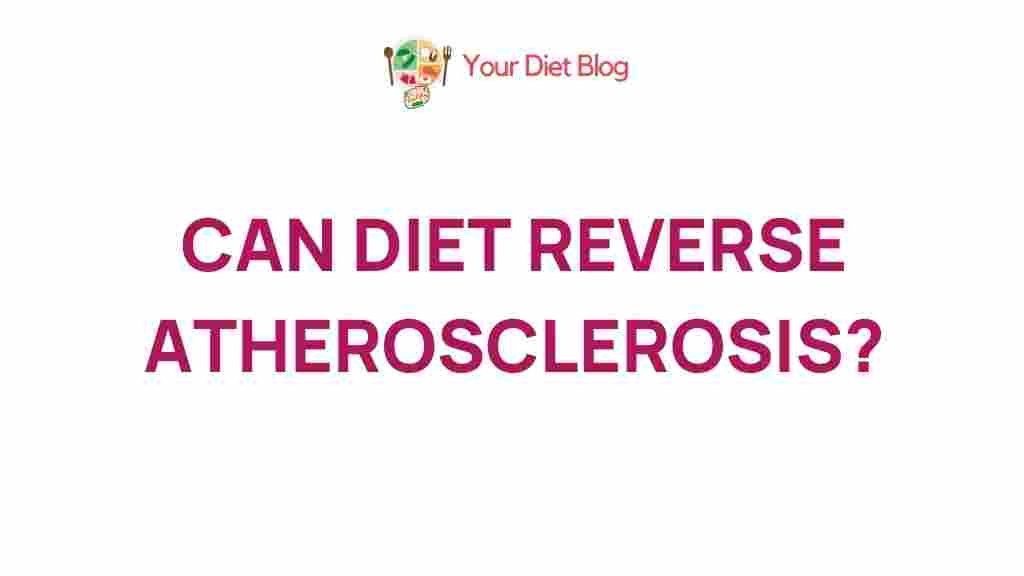Atherosclerosis, the build-up of fatty deposits in arteries, is a significant health concern worldwide. While medical interventions are often necessary, the power of **diet** to combat this condition is both promising and achievable. In this article, we’ll explore how specific dietary choices can help reverse atherosclerosis and improve heart health.
How Does a Diet Reverse Atherosclerosis?
The link between diet and atherosclerosis lies in the body’s ability to repair arterial damage and reduce inflammation. A balanced diet rich in nutrients can lower cholesterol levels, stabilize plaque, and even regress arterial blockages.
Here’s how key dietary components contribute to reversing atherosclerosis:
- Reducing LDL cholesterol: Foods high in soluble fiber, like oats and legumes, bind to cholesterol in the digestive system.
- Lowering inflammation: Anti-inflammatory foods such as fatty fish, nuts, and olive oil promote arterial healing.
- Enhancing endothelial function: A plant-based diet rich in antioxidants improves blood vessel flexibility.
Step-by-Step Guide to a Heart-Healthy Diet
Adopting the right dietary habits can make a profound difference in your cardiovascular health. Follow these steps to start reversing atherosclerosis today:
Step 1: Prioritize Plant-Based Foods
Plant-based diets have been scientifically proven to improve heart health. Focus on incorporating:
- Leafy greens: Kale, spinach, and arugula are rich in nitrates, which improve blood flow.
- Fruits: Berries, oranges, and apples provide antioxidants to fight free radicals.
- Whole grains: Foods like quinoa, barley, and oats lower LDL cholesterol.
Consider checking out our guide to plant-based eating for practical tips.
Step 2: Opt for Healthy Fats
Not all fats are created equal. Replace saturated and trans fats with heart-healthy options:
- Olive oil: Packed with monounsaturated fats, it lowers bad cholesterol.
- Avocado: A versatile fruit loaded with healthy fats and fiber.
- Fatty fish: Salmon, mackerel, and sardines are rich in omega-3 fatty acids.
Step 3: Limit Processed Foods
Highly processed foods are loaded with trans fats, added sugars, and excessive sodium, all of which worsen arterial health. Instead:
- Cook meals at home to control ingredients.
- Read food labels carefully to avoid hidden sugars and unhealthy fats.
Step 4: Embrace Functional Foods
Certain foods have medicinal properties that can actively combat atherosclerosis:
- Garlic: Contains allicin, which may help lower blood pressure and cholesterol.
- Green tea: Rich in catechins, known for improving endothelial function.
- Turmeric: Curcumin in turmeric has potent anti-inflammatory effects.
Common Challenges and How to Overcome Them
Adopting a heart-healthy diet can be challenging, but the rewards are worth the effort. Here are common obstacles and solutions:
Challenge: Cravings for Unhealthy Foods
Solution: Gradually transition by finding healthier alternatives to your favorite snacks. For example, swap potato chips for baked kale chips or a handful of nuts.
Challenge: Lack of Time for Meal Prep
Solution: Prepare meals in bulk and use a slow cooker or instant pot for convenience. Check out this external guide to meal prepping for ideas.
Challenge: Social Pressure to Eat Unhealthy
Solution: Communicate your health goals to friends and family. Suggest dining at restaurants with healthier options or host a potluck featuring nutritious dishes.
Additional Tips for Success
Maximize the effectiveness of your heart-healthy diet with these extra strategies:
- Stay hydrated: Drink plenty of water to aid digestion and circulation.
- Exercise regularly: Combine diet changes with physical activity for optimal results.
- Monitor progress: Track your cholesterol and blood pressure levels with regular check-ups.
Conclusion
Reversing atherosclerosis is achievable through the power of a well-structured diet. By prioritizing plant-based foods, healthy fats, and functional ingredients while minimizing processed foods, you can improve arterial health and enhance overall well-being.
Start small, stay consistent, and celebrate your progress. Your heart will thank you for it!
This article is in the category Nutrition Basics and created by YourDiet Team
